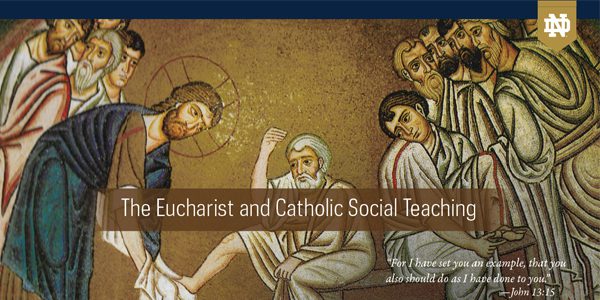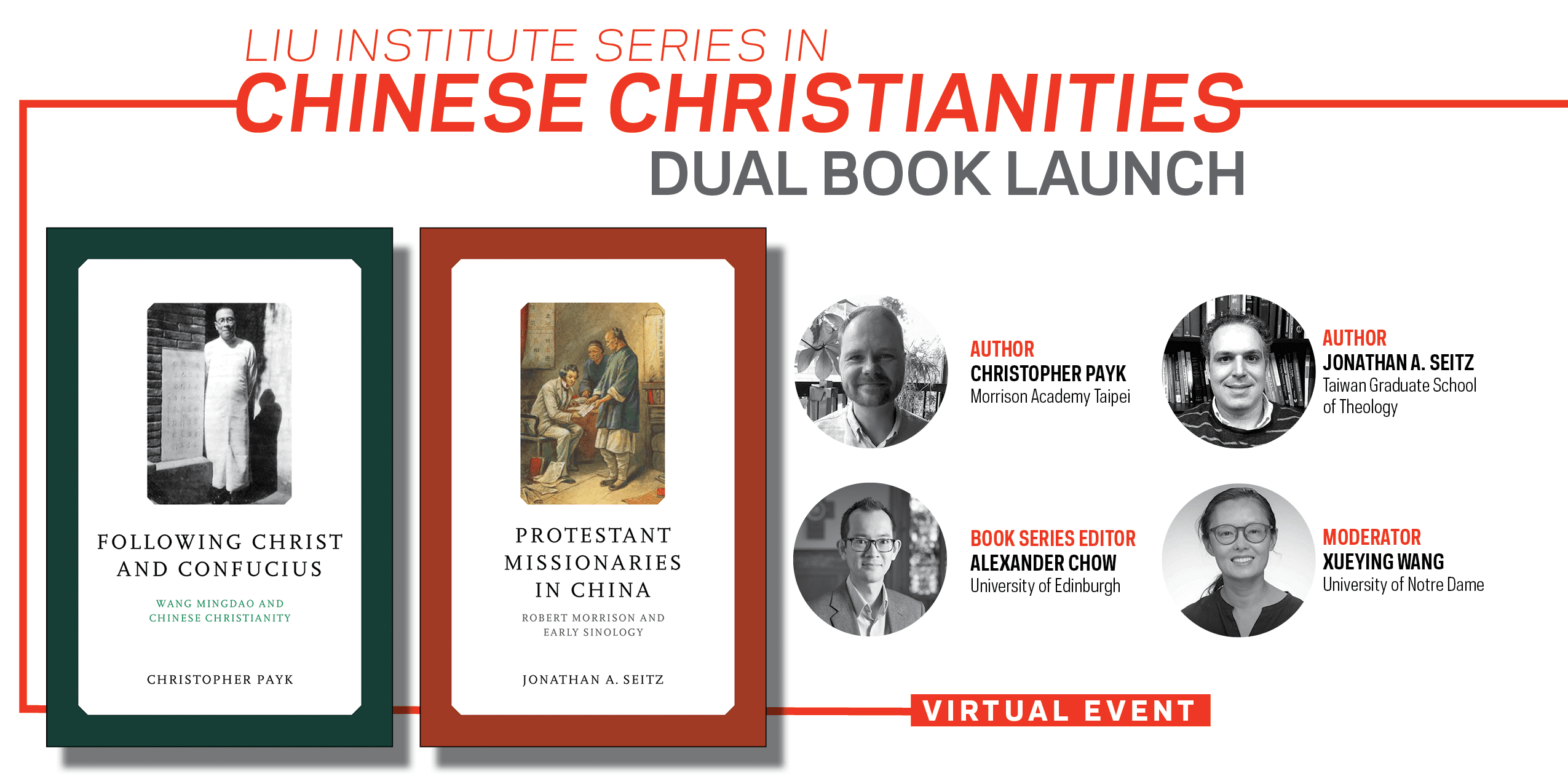Thinking about The Good Life Method in the New Year: A Fireside Chat with Professors Meghan Sullivan and Paul Blaschko
Subscribe to the ThinkND podcast on Apple, Spotify, or Google.
Featured Speakers:
- Ryan Cook, Alumnus, University of Notre Dame; Cybersecurity Consultant, EY
- Paul Blaschko, Assistant Teaching Professor in the Philosophy Department, University of Notre Dame
- Meghan Sullivan, Wilsey Family Collegiate Professor of Philosophy, University of Notre Dame
In the first virtual event of the Good Life Method series, Ryan Cook,a recent Notre Dame graduate and former student and fellow in the God in the Good Life course, moderated a discussion between Meghan Sullivan and Paul Blaschko, both teaching professors in the Philosophy Department at Notre Dame and co-authors of the God Life Method book. The conversation aimed to address how philosophy can be used as a lens to examine what it means to live and have a good life.
Cook opened the discussion by asking Sullivan and Blaschko to explain the importance of studying philosophy today and what they would say to someone who claims philosophy to be “boring.” Sullivan first agreed that philosophy can be boring or hard to understand, which can lead to frustration. However, she believed that philosophy is deeply practical and meant to be approached by everyone. Sullivan and Blashko agreed that people practice philosophy without even realizing it, which is a concept explored in their philosophy course at Notre Dame.
Sullivan and Blascko’s course, God in the Good Life, helps students seek truth. They explained that the genesis of the course came from students reacting unenthusiastically to philosophy. They wanted to make philosophy more approachable and practical to a student’s life. The success of the course at Notre Dame and seeing the larger interest in this course outside of the Notre Dame campus is what led to Sullivan and Blaschko’s decision to write the book. The book helps explore how philosophy can help readers care for their soul.
The course itself seeks to answer some big open ended questions about the good life. Some of these questions include, what do you owe to yourself and others, how should you value or love the truth, and what does it take for your life to be meaningful. While these are daunting questions, philosophical concepts can help students find an answer for their personal lives. Sullivan and Blaschko walk alongside students to help them learn and grow. Sullivan and Blaschko wanted students to know that there is a whole team of people in their lives that want to see them flourish at Notre Dame and beyond.
Cook finished the discussion by taking questions from the Q/A. The first question was asked by Dolly Duffy, Director of the Alumni Association, wanting to know a little bit more about the “corrupt the youth” banner displayed behind Sullivan. Sullivan shared that the banner has become a motto for the God in the Good Life course. Sullivan explained that the phrase comes from one of the many charges placed on Socrates for his teachings in Athens. Socrates notably tried to “corrupt the youth” by teaching them to ask tough questions and examine their beliefs more closely.
Similar to this idea, a viewer asked Sullivan and Blaschko to explain how their course helps corrupt the youth at Notre Dame. Blaschko explained that the course is organized around four big questions to explore. These include what you owe to others, how to figure out what to believe, should you practice religion, and what does it take for your life to be meaningful. Blaschko said the book is organized in a similar way. The book explores several overarching topics with the help of smaller questions and claims that can help lead us to an answer.
The last topic focused on in the Q/A was about cultivating care for others and what love is beyond words and actions. Blaschko said that many think of love asan action. However, Blaschko believes that there is more to love than that. Love is also about knowing what motivates another person and caring about those inner motivations and beliefs.
Both the course offered at Notre Dame and the Good Life Method book seeks to help individuals find truth in their lives by asking good questions and finding answers using philosophy as a structure to make meaning.
Key Takeaways/Walkaways and time stamps
- Philosophy is meant to be approached by everyone (4:00)
- We practice philosophy all the time and don’t even realize it (4:15)
- Philosophy should be about caring for your soul rather than memorizing concepts (13:20)
- The opening chapter of the book focuses on why places like Notre Dame care so much about teaching the good life and teaching philosophy. Each chapter then explores a different virtue, like how to care about the truth, how to have a good relationship with money, or what does it mean to love other people. (19:56)
- “One of the things Notre Dame cares about is serving young people to help them craft the type of life they want to live” (53:10)
Key Quotes and time stamps
- “Philosophy is deeply practical and meant to be approached by everyone” (Meghan Sullivan, 4:00)
- “I found it was incredible how many different perspectives show up in the book. I noticed you include those differing opinions and acknowledge that there is no right answer.”(Ryan Cook, 18:46)
- “Some of the best moments in teaching for me have been when students come up after class and say that they disagree.” (Paul Blaschko, 24:05)
- “One thing we try to do with students here or people who are just curious about what philosophy is is to remind the that in low stakes situations, we do still love figuring out the truth” (Meghan Sullivan, 35:50)
- “Look around at all of the people in your family, you have this team of people that are going to help you figure out this problem” (Meghan Sulliva, 55:36)
- “In the book, we raise the idea that love is more than what you do for other people. We often think about love as an action and it often is. Caring about a person’s inner life is just as important” (Paul Blaschko 57:30)
Related Content
Eucharistic Abundance and Social Regeneration
In 2022, the United States Conference of Catholic Bishops (USCCB) announced that the Church in this country would undertake a Eucharistic Revival, as a way to bolster Catholics’...
View EventThe Eucharist and Human Dignity
In 2022, the United States Conference of Catholic Bishops (USCCB) announced that the Church in this country would undertake a Eucharistic Revival, as a way to bolster Catholics’...
View EventLiu Institute Series in Chinese Christianities Dual Book Launch
Christianity is the fastest-growing religion in mainland China and a large, linguistically and culturally diverse Chinese diaspora, which encompasses more than a fifth of the...
View Event

